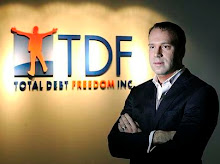On the one hand, credit counselling can be a good way to resolve debt while avoiding bankruptcy. On the other hand, it can be like an onion; once you peel back the layers, you may cry after you see what you are doing.
Consumer credit counselling service companies organize themselves as either for-profit or not-for-profit. Recently, not-for-profit Credit Counselling in America has been in the media and under the spotlight of the Internal Revenue Service ("IRS"). The IRS has cracked down on some of the industry's biggest players. Forty-one credit counselling companies had their tax exempt (not-for-profit) status revoked; they found that many companies didn't offer the level of counselling or education required in order to qualify for a tax-exempt status.
What credit counselling companies do (regardless of profit status) is arrange for you to pay back your full principal balance(s) on terms that are easier for you to service such as a longer amortization term and/or a reduced interest rate. What this means is that if you owe $10,000 and you are paying an average of 15% interest on all your debts, you will still owe $10,000 but they will hopefully reduce your interest rate to at least half of your original rate and set more affordable payments usually over a longer period of time. Provided you can afford the entire plan and fees, you will be debt free at some point. Remember not-for-profit does not mean free, they still charge you a fee.
You can actually call your creditor and do this yourself on your own at no cost. Most banks have their own internal counsellors that you can negotiate payment terms with that are more within your budget but this has to be done before the debt is assigned to a collection agency.
Credit counselling is reported to your credit report as a R7 and viewed negatively by every credit grantor. As a result, if you are in a 7 year repayment plan, don't count on using credit cards, getting a car loan or mortgage for the next 7 years plus the time it takes you to re-establish your credit rating.
The origin of credit counselling goes back to the 1980's when grantors got together and created it in order to recover money from people in debt. The new consumer credit counselling banner at the time was distanced from the credit grantors under a friendlier not-for-profit status which created trust and it worked well with the public. People signed up in droves and for-profit companies followed suit shortly there-after.
If you owe less then $10,000, credit counselling probably isn't a bad idea and a good alternative to bankruptcy. However, people still fail at these plans because they take a long time and a lot of money is consumed by maintenance fees over several years.
A new entry to the debt management marketplace has been debt settlement. Debt settlement has been a popular option in America and the movement has been gathering momentum in Canada. Unlike credit counselling, debt settlement actually reduces the principal balance owed by you to around 40%-70% of your original principal balance. A credit counselling service doesn't do that, it only freezes or reduces your interest rate.
If you owe more than you can manage, consider debt settlement as an option. It's an excellent opportunity to wipe out your debt quickly while saving you a substantial amount of money without doing the same damage to your credit rating as bankruptcy would. I have seen people with $50,000 of debt totally debt free in as little as 30 days if they have the right resources. Others may take up to 36 months depending on their ability to settle. Debt settlement companies are also an agent acting in your best interest and are not directed or managed by the very same people you owe the way that credit counselling companies are. In most cases, the fees of debt settlement companies are based on the money you save so that means they are working to save you as much as possible. See http://totaldebtfreedom.ca/ for more information on debt settlement.
Richard Cooper is Founder & CEO for Total Debt Freedom Inc. Canada's most respected debt settlement company. Originally conceived for the mortgage community in 2003 to help fund more sub-prime mortgages and fix turn downs due to bad credit; Total Debt Freedom also offers debt settlement plans up to 36 months for those that aren't homeowners. http://www.totaldebtfreedom.ca
Subscribe to:
Post Comments (Atom)


1 comment:
Thank you for the great tips. This was much needed, especially because I will need some solid credit counselling to help me out. This site has been lots of help too. Thank you.
Post a Comment